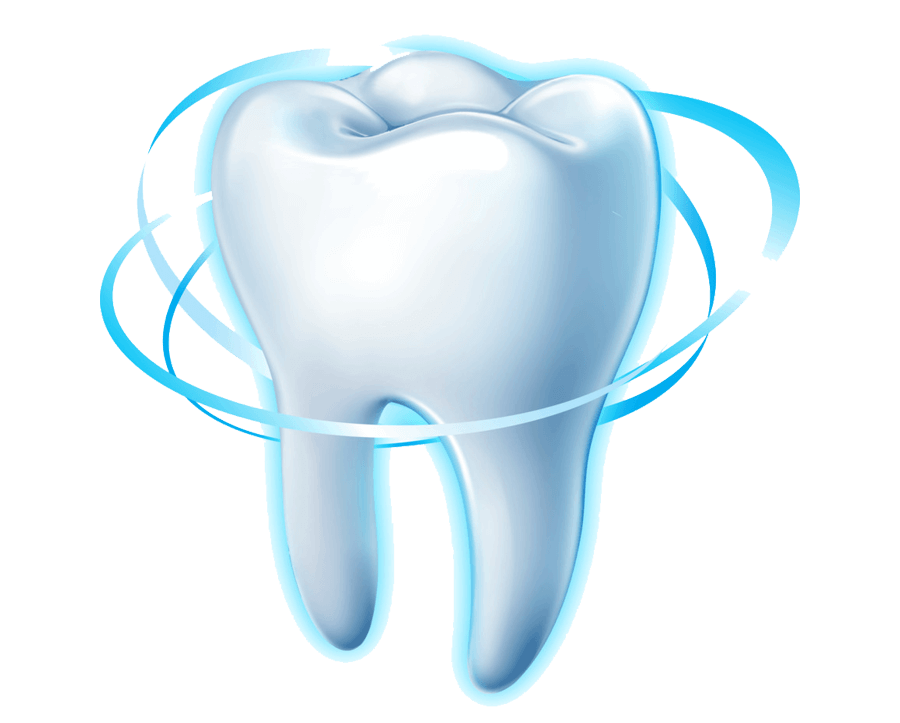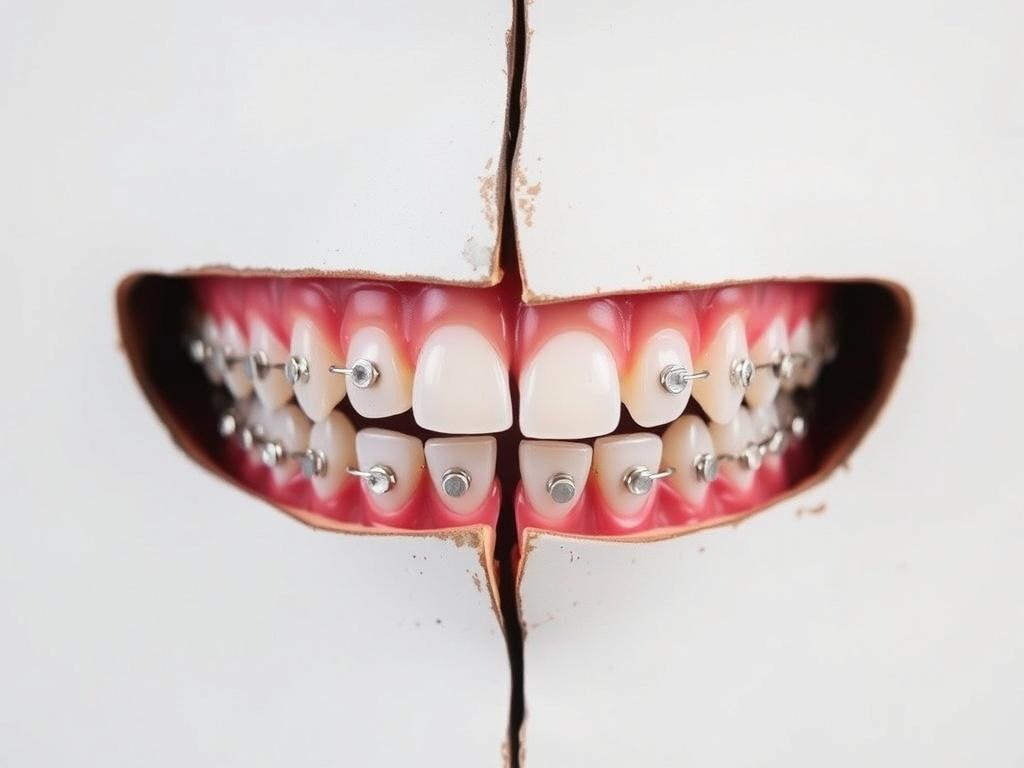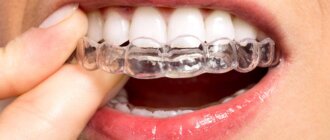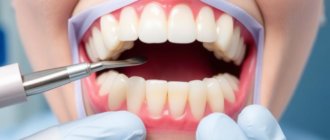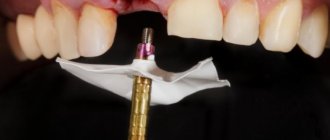If you are wearing braces, you understand how important it is to manage every little issue that arises during your orthodontic treatment. One of the most common dilemmas faced by people with braces is dealing with a broken braces wire. It can be uncomfortable, sometimes painful, and worrying enough to make you want to call your orthodontist immediately. But the truth is, not every broken brace wire is an emergency. With a little knowledge and some practical solutions, you can manage the situation until your next orthodontic appointment. In this article, we will explore various broken braces wire solutions, helping you understand what to do when your brace wire breaks, how to fix it temporarily, and how to avoid problems in the future.
Содержание
- 1 Understanding Broken Braces Wire Issues
- 2 Signs and Symptoms of a Broken Brace Wire
- 3 When to Seek Professional Orthodontic Help
- 4 How to Prevent Broken Brace Wires
- 5 Common Myths About Broken Braces Wires Debunked
- 6 How Long Can You Wait to Fix a Broken Braces Wire?
- 7 Essential Products to Keep Handy for Broken Braces Wire Solutions
- 8 Personal Stories: When Broken Braces Wire Led to Unexpected Lessons
- 9 Summary Table: Quick Reference for Broken Braces Wire Solutions
- 10 Conclusion
Understanding Broken Braces Wire Issues
The wire on your braces—called the archwire—is the metal piece that connects all your brackets and gently guides your teeth into position. This wire is usually made from stainless steel or nickel-titanium, materials chosen for their strength and flexibility. However, due to constant movement, pressure, and sometimes external impact, this wire can snap, bend, or poke into the soft tissues of your mouth. A broken braces wire is not only uncomfortable but can sometimes interrupt the progress of your orthodontic treatment.
Let’s first understand the common causes of broken braces wires:
- Eating hard or sticky foods: Foods like caramel, popcorn, nuts, or hard candies can put excessive pressure on wires.
- Accidental trauma: Playing sports without a mouthguard or accidental face impacts can damage wires.
- Normal wear and tear: Over time, wires can fatigue from continuous stress and eventually break.
- Poor oral hygiene: Not cleaning properly can cause corrosion and weaken the metal wires.
Understanding these causes will help you take proactive steps to avoid broken wires and know how to respond if one does break.
Signs and Symptoms of a Broken Brace Wire
Sometimes, a broken brace wire is obvious: you might feel something sharp poking the inside of your cheek or tongue, or perhaps you notice the wire is visibly displaced. Other times, the break could be subtle, or the wire might have bent rather than snapped. Here are some common signs that your braces wire might be broken:
- Sharp or poking pain inside your mouth
- Sensation of something loose or moving around your teeth
- Visible bending or detachment of the wire from brackets
- Irritated or sore gums, cheeks, or tongue due to the wire poking
- Difficulty eating or speaking comfortably
If you notice any of these symptoms, it’s crucial to take action to avoid injury or worsening discomfort.
Immediate Broken Braces Wire Solutions You Can Try at Home
If your braces wire breaks and you’re unable to reach your orthodontist right away, don’t panic. There are several home solutions to relieve discomfort and prevent further damage while you wait for professional care.
1. Use a Pencil Eraser to Push the Wire Back
If the wire has popped out or is poking your cheek, a simple tool like the eraser end of a pencil can help. Gently push the poking wire back toward your teeth or secure it under the bracket to minimize injury. Be careful not to push too hard or cause additional damage.
2. Cover the Wire with Orthodontic Wax
Orthodontic wax is a handy product designed precisely to deal with sharp or protruding braces parts. You can find it at most drugstores or orthodontic offices. Pinch off a small amount and roll it into a ball, then flatten and press it over the broken wire area to create a soft barrier between the metal and your mouth.
3. Use Nail Clippers to Trim a Poking Wire
If the wire has broken off but is still hanging and causing pain, using sterilized nail clippers or small scissors can help trim the sharp end. Be cautious to avoid swallowing any metal pieces, and only attempt this if you feel comfortable.
4. Rinse with Warm Saltwater
To reduce irritation or inflammation caused by the broken wire poking your mouth, rinsing with warm saltwater several times a day can soothe sores and keep the mouth clean.
5. Avoid Hard and Sticky Foods
While dealing with a broken braces wire, steer clear from foods that can exacerbate the problem or cause further wire damage. Soft foods and liquids are a safer bet during this time.
When to Seek Professional Orthodontic Help
While many broken braces wire solutions can be handled temporarily at home, certain situations require prompt professional intervention. You should contact your orthodontist immediately if:
- The wire has completely detached and is causing significant discomfort
- You experience persistent pain, swelling, or bleeding
- Your appliance is causing injury that you cannot manage on your own
- A break occurs right after you receive new braces or wire adjustments
- You notice unusual loosening of brackets or other parts of your braces
Orthodontists can fix or replace wires professionally, ensuring the proper function of your braces and preventing any treatment delays.
Permanent Solutions for Broken Braces Wires
Professional treatment usually includes these steps:
- Replacing or repairing the wire: The orthodontist may replace the broken wire with a new one or cut and reposition the existing wire.
- Adjusting brackets or bands: Sometimes brackets become loose or displaced because of wire issues, and need to be reset.
- Using ligatures or elastics: Orthodontists use special bands to hold wires more securely in place.
- Adding protective wax or guards: For extra protection or comfort post-repair.
Because braces wires are key to moving your teeth, timely treatment after a break is essential to stay on track with your orthodontic plan.
How to Prevent Broken Brace Wires
Prevention is always better than a cure, especially when it comes to braces wires. Here are some practical strategies to reduce the risk of breaks and damage:
Food Choices Matter
One of the major contributors to broken wires is the food you eat. Avoiding the following is key:
| Foods to Avoid | Reason |
|---|---|
| Sticky candies (caramel, taffy) | They stick to wires and brackets, pulling them loose |
| Hard nuts and popcorn | Can put excessive pressure and cause wires to bend or break |
| Ice cubes | Hard and cold, can snap or bend wires |
| Raw hard vegetables (whole carrots) | Chewing tough raw veggies can stress wires |
| Chewing gum | Sticky and can trap food and debris near wires |
Good Oral Hygiene Practices
Maintaining clean braces is not only important for dental health but also helps minimize corrosion and damage to wires. Use an orthodontic toothbrush, floss threaders, and regular dental check-ups to keep your braces in good shape.
Protect Your Braces During Sports
If you play contact sports or activities that could cause facial injury, always wear a mouthguard designed for braces. This extra protection can prevent accidental broken braces wires and other orthodontic appliance damage.
Handle Orthodontic Appliances Carefully
Be gentle when brushing and flossing around your braces. Rough handling or accidentally biting down on hard objects can weaken wires over time. If you notice a loose bracket or wire, address it as soon as possible to prevent breakage.
Common Myths About Broken Braces Wires Debunked
You might have heard various rumors about broken braces wire solutions or what to do when this happens. Let’s clear up some common myths:
- Myth: You should never try to fix a broken wire yourself.
Fact: While professional repair is best, you can safely apply orthodontic wax or gently push back a poking wire until you reach your orthodontist. - Myth: A broken wire means your braces are ruined.
Fact: Breaks are common and usually easy to fix; they don’t mean you have to stop treatment. - Myth: Removing your braces temporarily will fix wires.
Fact: Do not attempt to remove or adjust braces yourself; this can cause harm and delay treatment. - Myth: All broken wires require an emergency visit.
Fact: Some breaks are minor and can wait until your next scheduled appointment.
How Long Can You Wait to Fix a Broken Braces Wire?
This depends on how severe the break is and how much discomfort you are experiencing. Minor bends or a wire that is simply poking you can usually wait up to a week or two if temporarily managed with orthodontic wax. However, if the wire is loose, sharp, or causing pain that you cannot tolerate, it’s best to contact your orthodontist immediately.
What to Expect at Your Orthodontic Repair Visit
When you see your orthodontist for a broken braces wire repair, they will quickly assess the situation and determine the best fix. Here is what typically happens:
- Examining the broken wire and the entire appliance to identify related issues
- Trimming, adjusting, or replacing the broken wire
- Reattaching or replacing any loose brackets or bands
- Ensuring the bite and tooth movement remain on target
- Advising on care or special measures to avoid further damage
This visit usually takes less time than a regular adjustment and can often be accommodated quickly, especially when flagged as a repair.
Essential Products to Keep Handy for Broken Braces Wire Solutions
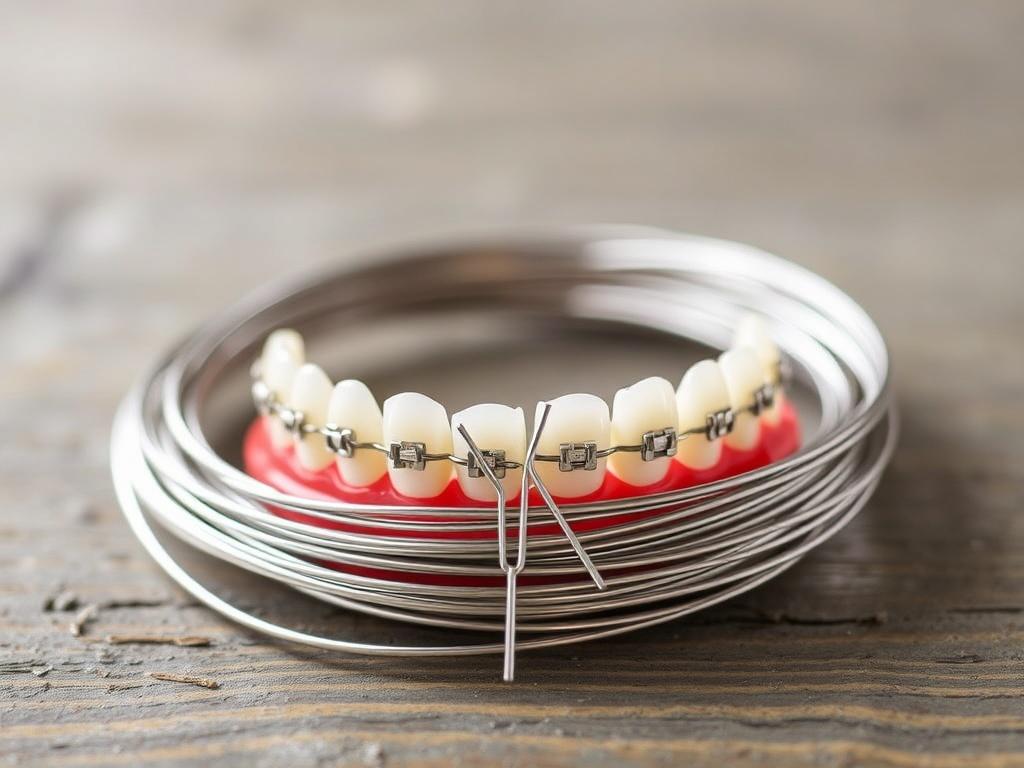
Having some supplies ready can make managing a broken braces wire much easier. Consider assembling a small emergency kit containing:
- Orthodontic wax: For covering poking wires
- Small nail clippers or wire cutters: To trim irritating wire, if needed
- Pencil eraser: To push wire back safely
- Salt packets: For making warm saltwater rinses
- Pain relievers: For discomfort (consult your doctor)
- Contact card: Your orthodontist’s phone number
This kit makes it simple to handle minor problems without panic or discomfort.
Personal Stories: When Broken Braces Wire Led to Unexpected Lessons

It’s helpful to hear from others who have faced similar issues. Many patients report that broken braces wire solutions taught them patience and self-care during treatment. For instance, Sara, a college student, shared how a broken wire during finals week initially stressed her out. However, with orthodontic wax and a calm approach, she managed the discomfort and got to her orthodontist shortly after without missing any study time. Others highlight the importance of following food restrictions and wearing mouthguards, saying they saved them from countless broken wires and painful fixes.
These stories remind us that while broken braces wire incidents can be inconvenient, they are manageable and part of the journey to a better smile.
Summary Table: Quick Reference for Broken Braces Wire Solutions
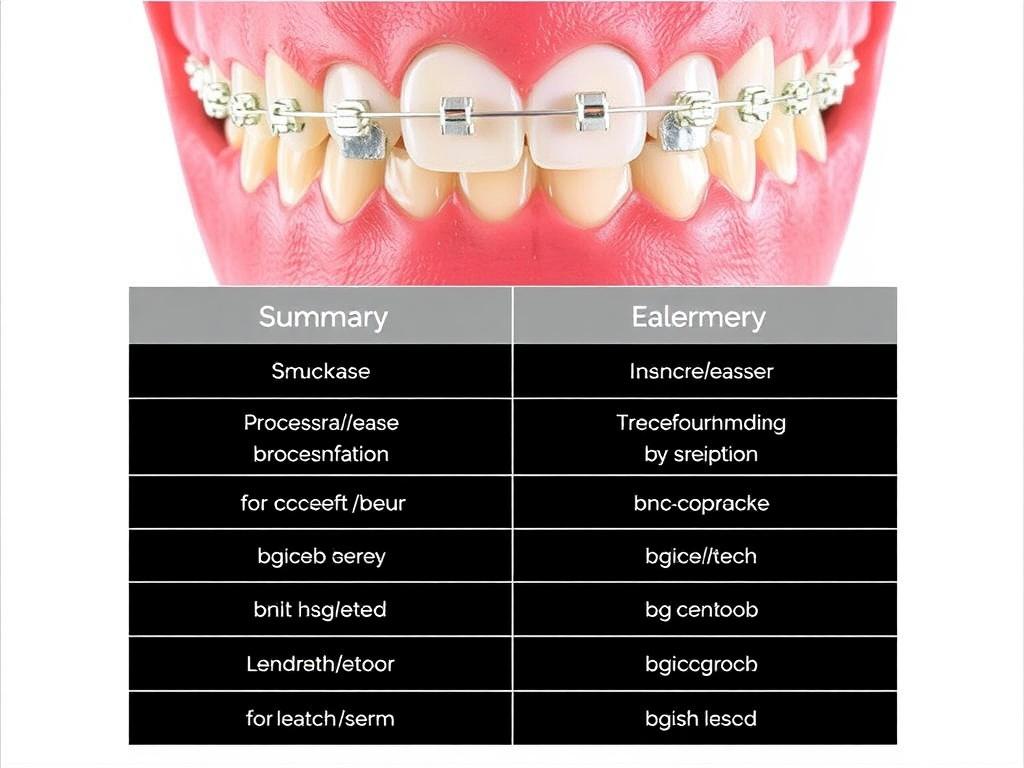
| Issue | Temporary Solution | When to See Orthodontist |
|---|---|---|
| Wire poking cheek/tongue | Push wire back with pencil eraser or cover with wax | If severe pain or sores develop |
| Wire bent but intact | Use wax, avoid irritating foods | At next scheduled visit if no discomfort |
| Wire broken and loose | Trim wire if possible, cover with wax | As soon as possible |
| Bracket loose or displaced | Avoid disturbing it | Immediately |
| Severe pain, swelling, or bleeding | Rinse with saltwater, use pain relievers | Immediately |
Conclusion
Dealing with a broken braces wire can feel overwhelming at first, but with the right approach and knowledge, it becomes a manageable challenge. Whether you’re dealing with minor poking, a bent wire, or a complete break, there are effective broken braces wire solutions that can relieve discomfort and protect your orthodontic progress until you can get professional help. Prevention through mindful eating, proper oral hygiene, and protective gear is equally important to minimize the chances of wire damage. Remember, your orthodontist is your partner in this journey—don’t hesitate to reach out when needed. Ultimately, these experiences, while sometimes inconvenient, are small steps toward the beautiful, healthy smile you are working hard to achieve.
